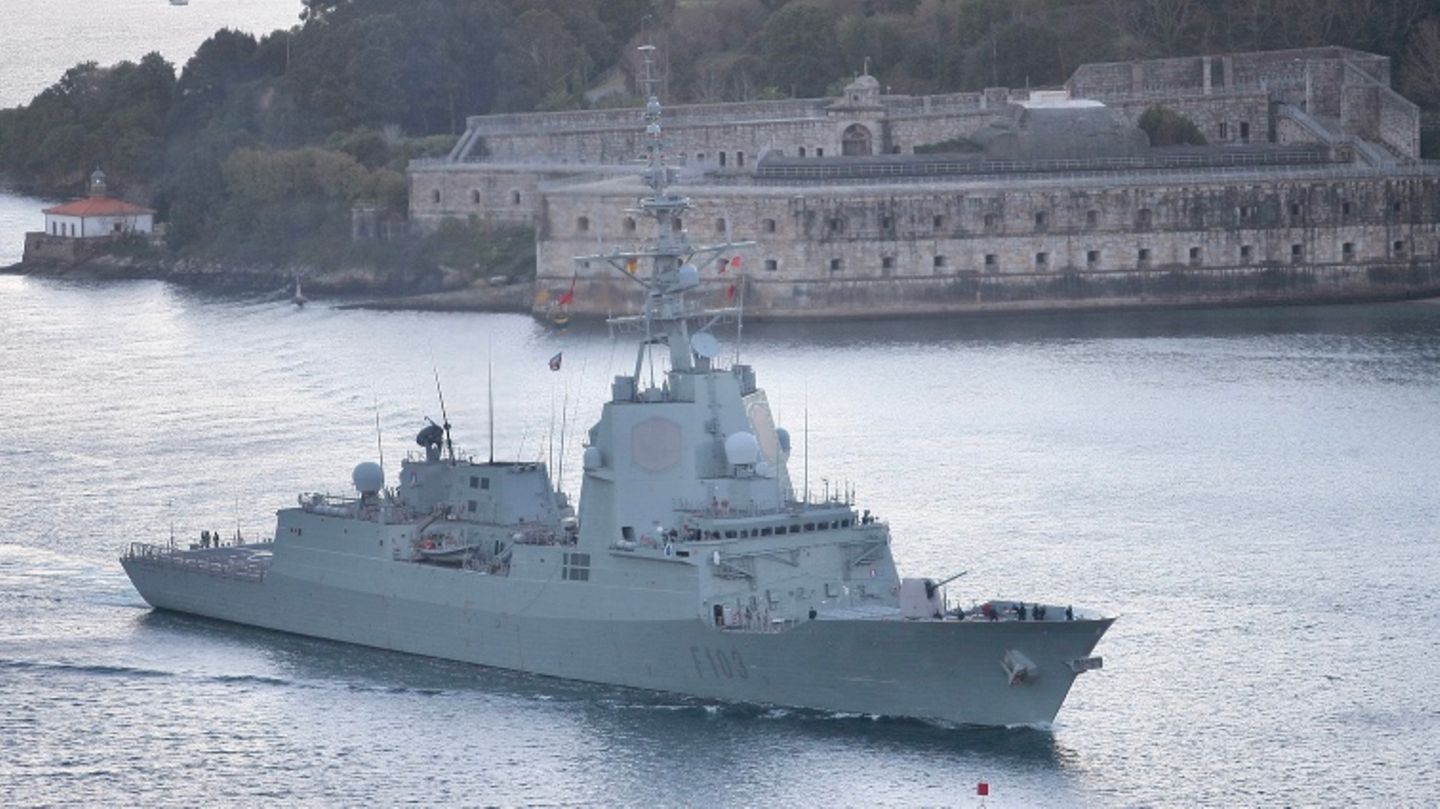In view of the worsening Ukraine crisis, several NATO member states are increasing their military presence in Eastern Europe. The alliance announced that it would send more combat aircraft and naval vessels.
Tensions between NATO and Russia continue to rise over the Ukraine conflict. As the military alliance announced on Monday, a number of member states now want to send additional combat aircraft and naval vessels to the Baltic Sea and Eastern European countries such as Lithuania, Romania and Bulgaria. NATO said the allies would rapidly deploy their troops and step up deterrence and defense measures “while Russia continues its military build-up in and around Ukraine.”
In the past few days, several member states had announced an increase in their military presence in the east: France had agreed to send troops under NATO command to Romania; Spain wants to strengthen the alliance’s naval units. Denmark is sending a frigate to the Baltic Sea and four F-16 fighter jets to Lithuania. From April, the Netherlands also took part in monitoring NATO airspace with two F-35 fighter jets in Bulgaria.
Ukraine crisis: Stoltenberg welcomes increased military presence
NATO Secretary General Jens Stoltenberg welcomed the announcements made by member states. “NATO will continue to take all necessary measures to protect and defend all alliance partners,” emphasized the Norwegian. The Latvian Foreign Minister Edgars Rinkevics also welcomed the step: “It is time to increase the presence of the allied forces on the eastern flank of the alliance,” he wrote on Twitter.
The European Union, on the other hand, reacted cautiously: On the fringes of a meeting of foreign ministers in Brussels, EU foreign policy chief Josep Borrell emphasized that as long as diplomatic talks with Moscow continued, there was no reason for the EU “to dramatize”. However, the Europeans continue to prepare a “strong sanctions package” in the event of an attack on Ukraine.
Federal Foreign Minister Annalena Baerbock (Greens) made it clear in Brussels that she currently does not think it makes sense to withdraw German embassy staff: “We must not contribute to further unsettling the situation,” warned Baerbock. However, the security situation for German nationals and employees of the Federal Foreign Office is constantly being reviewed. However, family members of German diplomats can leave the country voluntarily, as the Foreign Office in Berlin announced.
Media report: Biden considers sending troops
In contrast to the federal government, the USA and Great Britain have already decided to withdraw part of the embassy staff from Ukraine. The US State Department ordered the families of US diplomats in the Ukrainian capital of Kiev to leave the country. Local employees of the US embassy could also leave the country on a voluntary basis. In addition, the United States urgently advised its citizens against traveling to Russia. The British Foreign Office said some embassy staff and their families were withdrawing from Kiev “in response to the growing threat from Russia”.
According to a report by “”, US President Joe Biden is considering sending several thousand US soldiers as well as warships and aircraft to NATO allies in the Baltic States and Eastern Europe. Options include sending 1,000 to 5,000 troops to Eastern European countries, with the possibility of tenfold that number if the situation worsens, the report said. A decision is expected this week.
With a massive Russian troop deployment near Ukraine, there are fears in the West that the Kremlin may be planning an invasion of the neighboring country. However, it is also considered possible that fears are only being stirred up in order to persuade the NATO states to make concessions when demands for new security guarantees are made. It is Russia’s declared goal, for example, that NATO refrain from further eastward expansion and withdraw its armed forces from eastern alliance states. NATO and the EU reject these demands as unacceptable.
Source From: Stern
David William is a talented author who has made a name for himself in the world of writing. He is a professional author who writes on a wide range of topics, from general interest to opinion news. David is currently working as a writer at 24 hours worlds where he brings his unique perspective and in-depth research to his articles, making them both informative and engaging.




